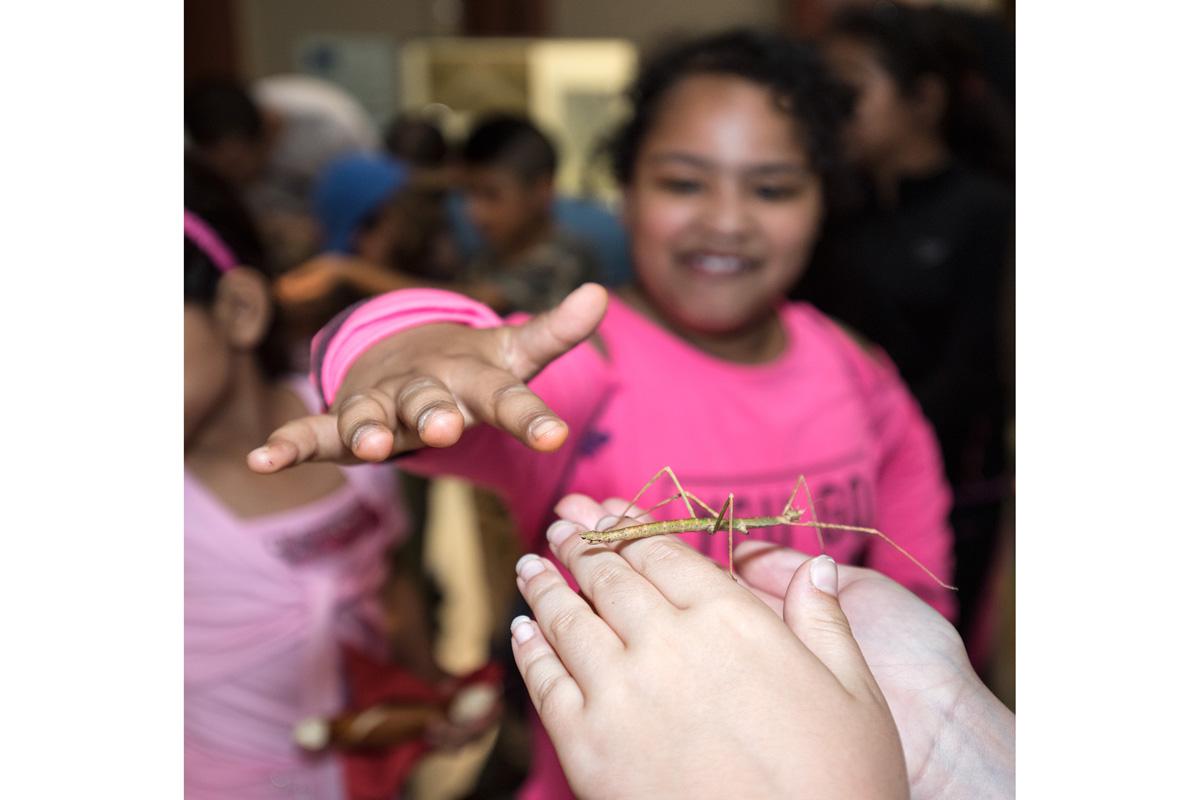Education alliance with Berlin Wedding educational institutions
The child is fascinated by the dung beetle. After several attempts, curiosity triumphs over fear and the beetle crawls around on the hand. He proudly runs to his teacher and shows her the insect. The cooperation project "MuseobilBox" with kindergartens and schools in the Wedding district has been in existence since 2012 and had different names, but the overriding goal remained: to strengthen children and young people with education.
Fox skins and microscopes
In the "MuseobilBox" funding programme, the museum offered two programmes from 2013 to 2017, which will be continued: A research club for primary school pupils who meet regularly in the museum and four-day programmes for daycare children with the theme "Wild Animals in Berlin": one day in the daycare centre, one in the Tegel Forest, and two days at the museum.
In order to give the children a first impression of the animals in the city, the project staff members take furs from foxes, wild boars and the like with them to the daycare centres and play recordings of animal voices. With masks they have painted themselves, the children imitate the behaviour of the animals. On excursions, also for the school children, the young naturalists experience native wild animals live - many for the first time.
In the Researchers' Club, the children can look behind the scenes of the museum, experiment and also do research, for example with microscopes. They receive passes that give them and two other persons free entry to the museum for one year. In this way, the project also tries to reach the families of the children.
Cooperation in the neighbourhood
Project manager Astrid Faber and her colleagues also represent the museum at street festivals and invite visitors to the museum once a year. "We want to anchor the museum here in the neighbourhood, attract new visitor groups and promote the participation of people in nature and the opening of the museum," says Faber. A prerequisite for the support by the Federal Association of Museum Education was the cooperation of the museum with an educational institution, here the Kitaverbund Brunnenviertel and the Gustav Falke School, and a socio-spatial partner, the district management Brunnenviertel-Ackerstraße and Brunnenviertel-Brunnenstraße. "It is a great success for us that our partners are committed to ensuring that we can continue together," says Faber.
The project was supported by the "MuseobilBox" funding programme of the Bundesverband Museumspädagogik e.V. as part of the "Kultur macht stark" programme of the Federal Ministry of Education and Research. With funds from the Socially Integrative City Project Fund, the Kita projects will be continued and further developed from 2018 to 2020. The range of activities for schoolchildren is also to be continued.
Funding
Federal Ministry of Education and Research - BMBF
Cooperation partners
- Bundesverband Museumspädagogik, Karlsruhe
- Quartiersmanagement Brunnenviertel-Ackerstraße, Berlin
- Gustav-Falke-Schule, Berlin
- Kitaverbund Brunnenviertel, Berlin
